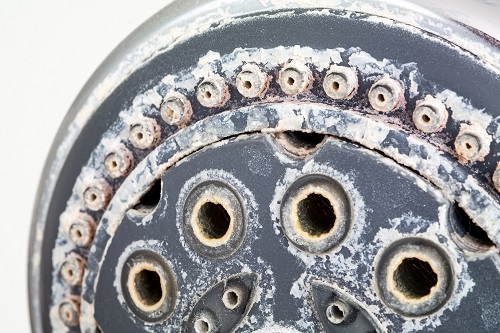
Many homeowners find hard water to be a nuisance. It can cause issues with plumbing and appliances. You can determine if you need to do anything about hard water by understanding what it is and what it does to your plumbing.
What is hard water?
Hard water is a term used to describe fresh water that contains high levels of minerals, such as calcium and magnesium. The white stain left by hard water on your faucet is an indication that it’s not soft.
How does water become hard?
Rainwater, although pure, absorbs minerals as it moves from the surface to aquifers. These minerals are primarily calcium and magnesium. The water becomes hardened by this absorption. Hardness is determined by the amount of minerals in the water. Water hardness can be measured by milligrams/liter (mg/L), or grains of minerals per gallon.
Common Plumbing Problems
It can be a problem because hard water reacts with cleaning agents, causes soap buildup, and wears down appliances and fixtures more quickly than soft. Hard water minerals react with soap, causing soap scum and preventing suds. You will need to use more detergent when you have hard water. Over time, the buildup of mineral deposits on dishes and glasses, clothing, and fixtures, can cause damage. Here are some common problems that can arise from hard water. If you notice any of these, don’t hesitate to hire a plumber.
- The scale buildup in water pipes can restrict water flow
- The buildup of film and scale on ceramic tiles and fixtures
- Water heaters are less efficient due to scale deposits
- Spots on dishes and glasses after washing in dishwater
- A lack of suds can lead to less effective washing.
- Wear on clothes increases during washing
What does it do to plumbing?
Hard water is not the only problem. Over time, the minerals in hard water also begin to accumulate inside appliances, pipes, and fixtures. This build-up, which we can’t see, can cause a variety of plumbing issues, including reduced water flow, clogs and increased pressure on fixtures and pipes. Mineral deposits can cause appliances to wear out faster and operate less efficiently. A water heater, for example, has to heat both the water and the mineral buildup in the tank. Hard water can lead to less efficient Myrtle Beach plumbing over time and require more repairs.
Test for Hard Water
Hard water is usually indicated by a white scale on fixtures. You can test your hard water by shaking a small amount of dish soap with water in a sealed container. If you don’t see a lot of suds in the solution, then your water is probably hard. You can get more accurate results by contacting your water provider to request a water testing report. You can have your water sample tested in a local laboratory or by a company on site (just be careful of conflict of interest, for example, if the company is a water-softener manufacturer). You can also use a water-hardness test strip, which is available at hardware and home centers. Simply hold the strip under running water and compare it to a color scale.
There are water-conditioning products that can be used to deal with mildly hard water. The most common and complete solution to treating hard water, however, is the installation of a whole-house water softener. In cases where water is above 3 GPG, installing a water-softener system can be the most efficient and effective solution.
Call Blue Ribbon Plumbing LLC now if you’re having problems with your plumbing system.
Like our Facebook page for more great info about plumbing services.
Blue Ribbon Plumbing LLC
4201 Carolina Exchange Drive Suite 202
Myrtle Beach, SC 29579
(843) 267-9733
https://www.blueribbonplumbingmb.com/
Serving all of Horry County including Myrtle Beach, North Myrtle Beach, Little River, Murrells Inlet/Garden City, Surfside Beach, Carolina Forest/Forestbrook, Conway/Aynor
No comments:
Post a Comment